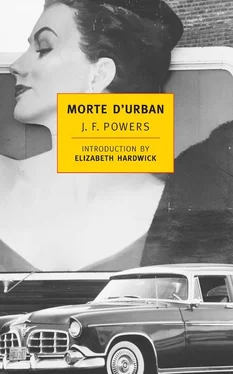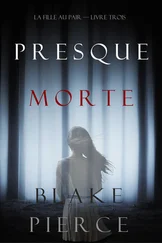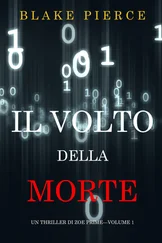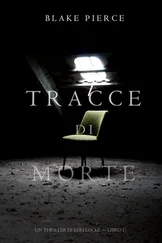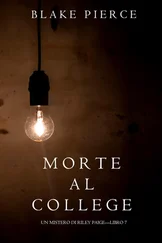“I’m glad you asked that,” Father Urban said. “For my part, I find Christmas as it’s celebrated nowadays still pretty much to my liking. I will say, though, that I like my Christmas trees green.” He was applauded for his stand. He wanted to leave it at that, but could see that more was expected of him. Obviously, the crusade had roused feelings of animosity in many present. He went on — as though he’d meant to go on. “As I see it, merchants — to mention only one group — are paying homage in the way best suited to them and their real talents.” This was better, he could see, but it still wasn’t good enough. He tried again, citing the example, from literature, of the mute tumbler whose prayer took the form of acrobatics before the altar of Our Lady. This was an example he’d used many times, but never before in that connection. Pressed for details, he told the whole story, adding a few touches of his own — and, if anything, improved the story. They loved it.
That should have ended the matter. But the man who’d asked the original question was still alive and kicking. He wanted to know whether Father Urban’s position wasn’t different from that held by “some leaders in the Catholic Church — I’m talking about the man in charge out there where you are.”
“And I’m glad you asked that ,” Father Urban said. “To begin with, I don’t think the man in question, able though he is, can be regarded as one of the leaders in the Catholic Church. He’d tell you that himself, if he were here.” And thank God he isn’t! “Now what you refer to as my ‘position’ is hardly that. It’s only an opinion, and opinions differ. Let me explain. As you know, I’m a Catholic, and as such I believe in the infallibility of the Pope — in certain matters. In other matters, even those relating to religion, ‘ Je ne sais ,’ as the French say, is sometimes the right answer. I don’t know . Why, until a few years ago, the doctrine of the Assumption — that is, the ascent of Our Lady into Heaven — was no more than an opinion. Oh, a most trustworthy opinion, to be sure, and held by some of the wisest and holiest men in Christendom, but still only an opinion. Why, the infallibility of the Pope — the doctrine we were just discussing — was just a matter of opinion a hundred years ago. (Actually, you know, the area it covers is quite small.) So, if any of you good people should happen to be in Rome, and you hear the Holy Father say he believes it’s going to rain, you don’t have to believe it — no, not even if you’re a Catholic.”
This, coming from a priest, was pretty strong stuff.
The toastmaster called for order.
“Yes?” said Father Urban to an attractive red-haired woman who had her hand up. He was glad to move on to somebody else.
“But we may believe — and isn’t it better if we do?”
“Believe it’s going to rain because the Pope says so?” There was always a pious troublemaker or two in any audience, but they usually weren’t much to look at.
“ Yes! Oh, the example you give is ridiculous, of course, but isn’t the Holy Father entitled to all the respect we can give him? As Christ’s vicar on earth?”
The question was tasteless and irrelevant, but Father Urban smiled. He doubted that anyone who meant well toward him and his predominantly non-Catholic audience would have asked such a question. He had no choice but to shoot the woman down. “As a Catholic — that is, as one who respects proper authority — I’m afraid I’d be more inclined to trust the weather bureau in such a matter.”
When Father Urban was able to continue, he was again speaking to the audience at large: “Differences of opinion can occur in any organization, human or divine, large or small — yes, even in the best-run families, between husbands and wives, so I’ve been told anyway.” Laughter. People who, perhaps, hadn’t entirely trusted the speaker until he dealt with the redhead, and then hadn’t been far from carrying him around the room on their shoulders, were now in a mood to get cozy with him. “Now don’t misunderstand me. I’m not saying that differences of opinion are a good thing in themselves, but I do think there’s a lot to be said for taking them for what they often are — healthy manifestations of the democratic process.” Clapping here and there, but Father Urban could tell it wasn’t going to catch on, and so, quickly, before this would be unnecessary, he raised his hand for silence. “Now that we’re on the subject, let me tell you of another difference of opinion in which I was involved recently. For many years, I traveled out of Chicago, but now, as some of you may know, I’m stationed right here in Minnesota — and very happy to be here, let me say. Where I am was known, until recently, as the Retreat House of the Order of St Clement. Quite a mouthful, you say, and I agree. There are just four of us there, three priests and a brother, and we got to wondering if we couldn’t find another name for the place (which, by the way, I hope you’ll all find time to visit — Catholic or not, it makes no difference to us . Just stop in and say hello). Well, one of our men (the one in charge, as it happened) was all for calling the place Mount St Clement, whereas I was more for St Clement’s Hill, and so we called it that.” Here Father Urban did a doubletake. “Say, I wonder how that happened!” he cried, and drew another fine laugh, and that was it. Waving, and saying, “Good night! Good night!” he sat down — certain that he’d repaired a good part of the damage done by Wilf and the crusade, and also that he’d put the Hill on the map for a lot of people who really mattered in the community. The audience gave him a wonderful hand, almost a standing ovation.
A number of couples came up to him afterward and thanked him for coming, one woman asking if there was any way of obtaining a copy of his talk, and one man saying that, though he was not a Catholic himself, he had always regarded Catholicism as one of the world’s top religions and had never felt closer to it than he had that evening. The toastmaster (not a Catholic himself) expressed regret that Father Urban had been questioned so closely along certain lines. “Not a-tall, not a-tall,” said Father Urban, and accepted an invitation to have a nightcap with the toastmaster and his wife at their home.
Others followed them there. Unfortunately, a couple of ulcer cases, under the spell of Father Urban’s company, seemed to be forgetting themselves. After one drink, Father Urban stood up, saying, “I don’t want you, and your better halves, blaming me for your downfall. Besides, I have to get up in the morning.”
In the car, on the way back to the Hill, Father Urban spoke to the toastmaster, and to one of the ulcer cases who’d come along for the ride, of the great work the Order was doing all over the world, particularly in the Chicago province, and made it sound important and exciting even to himself. The toastmaster, whose name was George, was reluctant to say good night. “Yes, as a matter of fact, we are pretty busy right now,” said Father Urban, but promised to have dinner with both men, separately or together, at his earliest opportunity.
Wilf was still up — up in the Rec Room, admiring it in the large mirror which now hung on one wall and added another dimension to the room, in Wilf’s opinion, but which, in Father Urban’s opinion, only added insult to injury.
“How’d it go?”
“Oh, all right, I guess. By the way, they tried to give me something, but I gave it back to them.”
“How much?”
“I couldn’t say. It was in an envelope, and I just handed it back. ‘Merry Christmas from the Order,’ I said.”
Читать дальше
